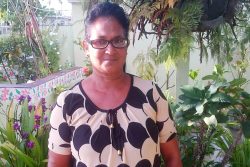BRASILIA, (Reuters) – Brazil’s Supreme Court upheld the creation of a native Indian reservation on the northern border in a landmark ruling yesterday likely to strengthen indigenous rights against farmers and big business.
The court voted 10-1 against a petition by two senators from the northern Roraima state who contested the government’s creation in 2005 of the 4.2 million-acre (1.7 million-hectare) reserve — about the size of Kuwait — and asked that it be reduced in size.
Indian supporters celebrated the decision as confirmation of land rights that Indians were granted in the 1988 constitution. The decision could encourage Indians throughout the country in their struggle to regain ancestral lands. Dozens of Indians are killed each year in land conflicts.
“Without a doubt, it’s a victory for Brazil, its international image, human rights and the Indian people, said Marcio Meira, chairman of Funai, the government agency for indigenous affairs. Land has been staked out for the reserve but outsiders have not yet been removed.
Sitting in the courtroom amid many people dressed in coats and ties, scantily clothed Indians with painted faces and feathered headdresses listened to the judges explain their vote in lengthy legal discourses.
Critics say the Raposa-Serra do Sol reserve is too big for the 19,000 Indians who will have the sole right to live there and work the land.
Many mining, timber and agriculture businesses see it as an obstacle to growth and complain about the legal uncertainty it creates.
Rice farmers who settled on the land decades ago before it became a reserve and who will now be expelled, mocked the decision.
“This is ridiculous, they’re voting against progress,” one of them scoffed after the ruling.
Farmers clashed with Indians on several occasions last year, injuring some.
There are more than 750,000 Indians among Brazil’s 190 million people and their lands account for 12 percent of Brazil’s territory. While some live on extensive lands in the Amazon, others are cramped into ghetto-like reserves in the southwestern part of the country.
Most Indians hope the reserve will give them the legal backing to develop their own farms. But some who wanted their towns excluded from the reserve for fear they would be cut off from modernity, were not happy with the ruling.
“We want to continue doing business with the white man.
They want us to be primitive Indians, but we’re civilized,” said Caetano Raposa, 65, one of the few Indians from the region who could afford a plane ticket to travel the 1,700 miles (2,700 km) to hear the ruling in the capital, Brasilia.
Others warned that a single reserve could not accommodate rival Indians of the same ethnicity driven apart over decades by outsiders.
“The church, settlers, NGOs — they all divided our people,” Abel Barbosa, a Macuxi Indian from the town of Flechao told Reuters in front of the modernist Supreme Court building.
“There will be more blood shed in that land.”









